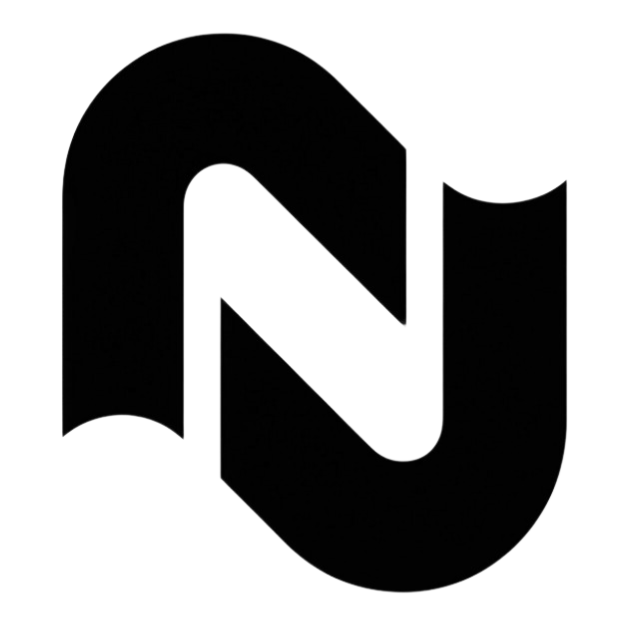

Project Scenario: Blended Learning Initiative for Bethanie Aged Care
Background
Bethanie's Quality and Compliance team identified a critical need to prepare all staff for the implementation of the Strengthened Aged Care Quality Standards while reinforcing Bethanie's Six Signature Behaviours and values-based care approach. The initiative required a comprehensive learning solution that would reach approximately 1,200 employees across multiple roles and locations, including residential care facilities, home care, and retirement villages.
The primary challenge was to transform complex regulatory requirements into practical, actionable learning that aligned with Bethanie's mission of "demonstrating the love of God by positively changing the way Australians experience ageing."
Marketing & Brand Integration
As the Instructional Designer positioned within Bethanie's Marketing & Brand team, I recognized that this training initiative represented not just an educational opportunity but also a significant internal branding touchpoint. All learning materials would need to:
Maintain consistent branding and visual identity across all components
Reflect Bethanie's brand voice and tone in all content
Reinforce key brand messaging about person-centered care
Support the broader organizational narrative being communicated to external stakeholders
Create a cohesive experience between internal training and external communications
This positioning allowed for unique collaboration opportunities with the Marketing team to ensure learning materials served dual purposes: educating staff while reinforcing Bethanie's brand identity internally.
Analysis Phase
I began with a comprehensive needs analysis to understand both the regulatory requirements and organizational context:
Stakeholder Consultation:
Conducted interviews with Bethanie's Quality & Compliance team to understand specific implementation needs
Met with representatives from Residential Care, Home Care, and Village services to identify role-specific requirements
Engaged with Bethanie's Chaplaincy team to ensure proper integration of faith-based values
Collaborated extensively with the Marketing & Brand team to understand brand voice, style requirements, and current messaging campaigns that could be leveraged in training materials
Content Analysis:
Performed detailed mapping of the seven Strengthened Aged Care Standards to identify key knowledge and skill requirements
Analyzed Bethanie's Six Signature Behaviours and values framework to identify integration points with the Standards
Reviewed existing Bethanie training materials to maintain consistency and build on prior knowledge
Conducted an audit of Bethanie's marketing materials, website content, and resident communications to ensure alignment between external messaging and internal training content
Examined current staff competency data to identify potential knowledge gaps
Audience Analysis:
Developed learner personas for key roles: Care Staff, Nurses, Team Leaders, Lifestyle Coordinators, and Support Staff
Assessed typical work patterns and learning environments (including availability of technology)
Evaluated digital literacy levels across different staff groups
Identified preferred learning modalities through staff surveys and focus groups
Analyzed how staff serve as brand ambassadors in their interactions with residents, families, and the community
Environmental Analysis:
Mapped available technology infrastructure across all locations
Assessed time constraints and scheduling challenges for different staff groups
Identified optimal learning spaces for in-person components
Evaluated organizational readiness for change
Reviewed upcoming marketing initiatives to identify opportunities for training integration and support
Key Findings:
Staff needed practical application rather than theoretical knowledge
Significant time constraints existed for frontline care staff
Digital literacy varied widely across the organization
Strong desire from leadership to connect standards compliance with Bethanie's mission and values
Preference for scenario-based learning relevant to daily work
Need for different learning pathways based on roles and responsibilities
Training presented an opportunity to strengthen internal brand identity
Staff often struggled to articulate Bethanie's unique approach to care when speaking with residents and families
Inconsistent understanding of how brand elements relate to everyday care practices
Design Phase
Based on the analysis findings, I designed a comprehensive blended learning solution:
Learning Objectives:
Aligned with Bloom's Taxonomy, focusing on application and analysis levels appropriate for staff roles
Mapped each objective to specific Standards and Signature Behaviours
Created tiered objectives based on staff responsibility levels
Included brand ambassador objectives focused on consistent communication of Bethanie's values and approach
Content Architecture:
Developed a modular structure with core content for all staff and role-specific extensions
Created a knowledge architecture linking Standards, values, and behaviors
Established a narrative framework connecting abstract standards to real resident experiences
Integrated Bethanie's brand story throughout the content structure, using it as a cohesive narrative thread
Learning Modalities:
Designed a blended approach with:
Self-paced eLearning for foundation knowledge
Team-based workshops for applied learning
On-the-job coaching tools for skill reinforcement
Mobile microlearning for ongoing reinforcement
Leader-led discussions for values integration
Brand immersion activities connecting staff to Bethanie's wider marketing messages
Assessment Strategy:
Developed knowledge checks within eLearning modules
Created scenario-based assessments reflecting real workplace situations
Designed structured observation checklists for on-the-job verification
Established reflection activities connecting standards to Bethanie's values
Included brand voice assessments evaluating ability to communicate in alignment with Bethanie's external messaging
Brand Integration Strategy:
Created a visual style guide specifically for learning materials that aligned with Bethanie's brand guidelines
Developed a "tone and voice" framework for learning content that reflected Bethanie's brand personality
Designed a system for consistent use of organizational terminology across all learning materials
Identified opportunities to incorporate real marketing materials (photos, videos, testimonials) into training content
Development Phase
I led the development of learning assets using a range of tools and approaches:
eLearning Development:
Created responsive, accessible modules using Articulate Storyline
Developed scenario-based learning with branching decision points
Implemented Bethanie's visual brand identity throughout all digital learning assets
Maintained consistent brand voice in all on-screen text and narration
Incorporated engaging interactions including:
Day-in-the-life simulations of resident experiences
Interactive decision points linking standards to behaviors
Video demonstrations of best practices
Reflective activities connecting practices to values
Brand story elements that connected learning to Bethanie's broader narrative
Workshop Materials:
Developed facilitator guides with detailed session plans
Created participant workbooks with application activities
Designed team-based scenario cards for collaborative learning
Produced reflection tools linking standards to Bethanie's mission
Ensured all printed materials upheld Bethanie's brand standards for typography, color, imagery, and messaging
Job Aids and Performance Support:
Created pocket reference guides for each standard
Developed decision-making flowcharts for common care situations
Produced posters linking standards to Signature Behaviours
Designed manager conversation guides for reinforcing learning
Created dual-purpose tools that served as both learning aids and potential resident/family communication pieces
Mobile Microlearning:
Developed 3-5 minute reinforcement modules focused on specific practices
Created a library of scenario videos showing standards in action
Designed weekly reflection prompts delivered via mobile devices
Produced quick knowledge checks for spaced repetition
Utilized consistent visual design elements across platforms to create a seamless brand experience
Implementation Phase
The implementation strategy focused on maximizing engagement and completion while minimizing disruption to care operations:
Phased Rollout:
Began with manager/team leader preparation (2 weeks)
Implemented core eLearning modules for all staff (4 weeks)
Conducted team-based workshops (6 weeks)
Deployed role-specific extension modules (4 weeks)
Implemented ongoing reinforcement program (continuous)
Aligned training phases with broader marketing campaigns to create reinforcing touchpoints
Communication Strategy:
Developed a multi-channel awareness campaign in collaboration with Marketing
Created leader communication toolkits for consistent messaging
Established a central information hub for program resources
Implemented a progress tracking dashboard for managers
Utilized existing marketing channels and design elements for program communications
Technical Implementation:
Configured Bethanie's LMS for optimized course delivery
Established completion tracking and reporting mechanisms
Implemented mobile optimization for on-the-go access
Created technical support resources for learners
Ensured seamless brand experience across platforms (LMS, mobile, print)
Support Network:
Trained facility-based "Learning Champions" to provide peer support
Established a helpdesk for technical and content questions
Created a digital community for sharing implementation experiences
Provided coaching resources for managers to reinforce learning
Positioned Learning Champions as brand ambassadors for both the training initiative and Bethanie's values
Evaluation Phase
The evaluation framework measured both learning effectiveness and business impact:
Level 1: Reaction
Post-module satisfaction surveys
Workshop feedback forms
Manager perception surveys
Evaluation of brand consistency and messaging effectiveness
Level 2: Learning
Pre/post knowledge assessments
Scenario-based competency demonstrations
Values alignment reflections
Assessment of ability to articulate Bethanie's unique approach in resident interactions
Level 3: Behavior
Structured workplace observations
Self-assessment of confidence and application
Manager validation of practice changes
Measurement of consistent brand voice usage in staff communications
Level 4: Results
Compliance audit results
Resident/client satisfaction measures
Quality indicator improvements
Documented examples of values in action
Impact on overall brand perception metrics
Level 5: ROI
Reduced compliance issues
Improved resident outcomes
Enhanced staff engagement and retention
Marketing cost efficiencies through dual-purpose content
Brand-Aligned Learning Components
The program utilized several strategies to ensure alignment with Bethanie's brand identity:
Visual Brand Integration
All learning materials incorporated Bethanie's visual identity, including:
Consistent use of Bethanie's color palette across all materials
Approved typography and font treatments
Photography style that reflected Bethanie's marketing approach
Custom iconography aligned with Bethanie's visual language
Standardized templates for all materials (digital and print)
This visual consistency created a seamless experience between external marketing and internal training, reinforcing a unified organizational identity.
Brand Voice and Messaging
Content was developed using Bethanie's distinctive voice:
Warm, compassionate tone aligned with the "You're among friends" messaging
Faith-based language appropriate to Bethanie's Christian foundation
Consistent terminology for core concepts (e.g., "residents" vs. "clients")
Stories and examples that reinforced Bethanie's brand narrative
Person-centered language reflecting marketing approaches
This consistent voice helped staff internalize how to communicate Bethanie's values in their own interactions.
Brand Story Integration
The training incorporated elements of Bethanie's brand story throughout:
Historical context about Bethanie's 70-year heritage of care
Testimonials from residents that also appeared in marketing materials
Success stories highlighting exemplary care aligned with marketing messaging
References to Bethanie's community initiatives and impact
Connections between standards compliance and Bethanie's reputation for excellence
This approach helped staff understand their role in upholding and enhancing Bethanie's brand promise.
Dual-Purpose Content Development
Working within the Marketing & Brand team enabled the creation of efficient, dual-purpose content:
Video testimonials filmed for marketing campaigns were incorporated into training modules
Resident stories gathered for training were repurposed for external communications
Infographics explaining care approaches served both educational and promotional purposes
Staff training photos were captured in a style consistent with marketing imagery for potential promotional use
Quality standards explanations were written to be understandable by both staff and residents/families
This integration created efficiencies while ensuring consistent messaging across all audiences.
Conclusion
This case study demonstrates my comprehensive approach to instructional design, highlighting my ability to:
Apply the ADDIE methodology systematically to complex training needs
Create blended learning solutions that accommodate diverse learners and operational constraints
Translate complex regulatory requirements into practical, engaging learning experiences
Integrate organizational values into compliance-focused training
Design learning that extends beyond courses to support performance in the workflow
Implement comprehensive evaluation strategies that demonstrate business impact
Ensure perfect alignment between learning materials and organizational brand identity
Leverage my position within Marketing & Brand to create efficient, dual-purpose content
Help staff become effective brand ambassadors through consistent messaging and values
Support broader marketing objectives through strategically designed training initiatives
This approach would be directly applicable to Bethanie's unique needs for staff development delivered through an Instructional Designer positioned within the Marketing & Brand team, ensuring that all learning initiatives simultaneously build skills and reinforce Bethanie's distinctive identity and mission.
